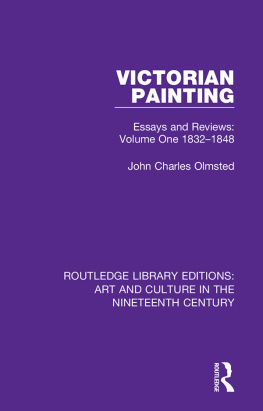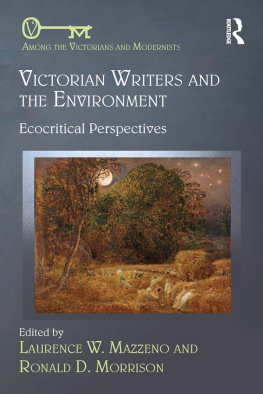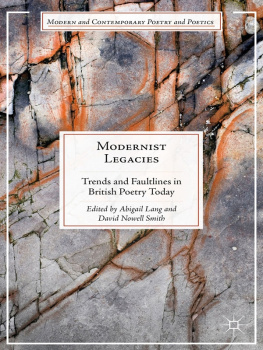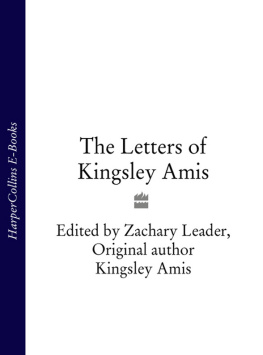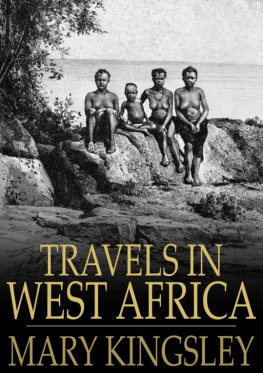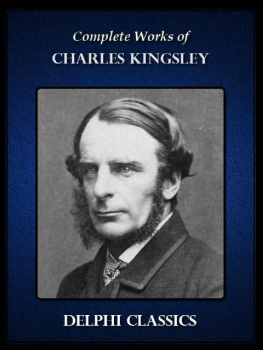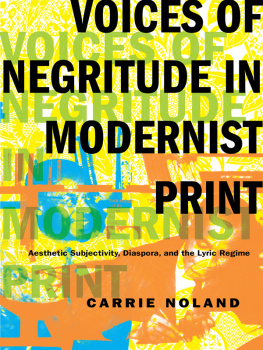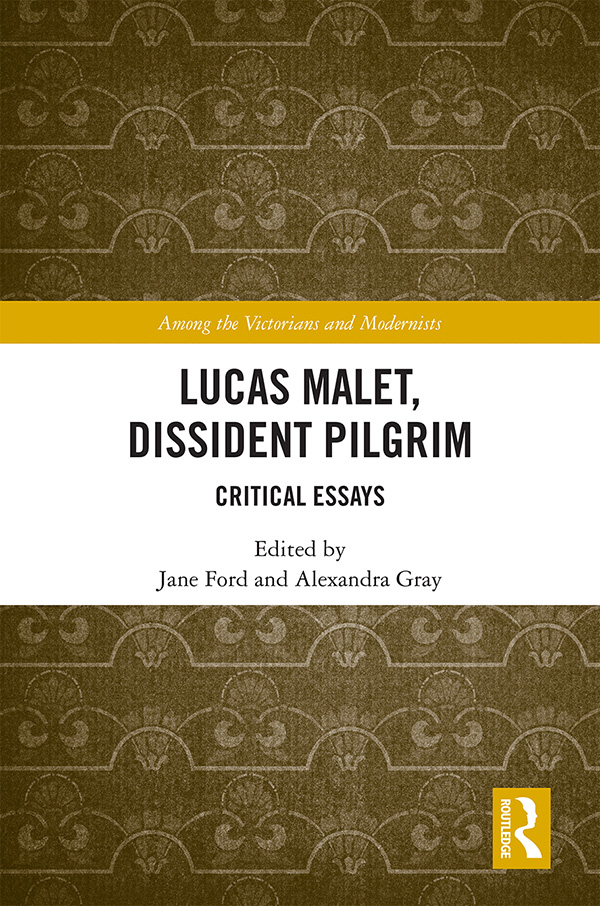
Lucas Malet, Dissident Pilgrim
Popular novelist, female aesthete, Victorian radical, and proto-modernist, Lucas Malet (Mary St. Leger Harrison, 18521931) was one of the most successful writers of her day, yet few of her remarkable novels remain in print. Malet was a daughter of the broad church priest and well-known Victorian author Charles Kingsley; her sister, Rose; her uncle, Henry Kingsley; and her cousin Mary Henrietta Kingsley were also published authors. Malet was part of a creative dynasty from which she drew inspiration but against which she rebelled, both in her personal life and in her published work. This collection brings together for the first time a selection of scholarly essays on Malets life and writing, foregrounding her contributions to nineteenth- and twentieth-century discourses surrounding disability; psychology; religion; sexuality; the New Woman; and decadent, aesthetic, and modernist cultural movements. The essays contained in this volume explore Malets authorial experiencefrom both within the mainstream of the British literary tradition and, curiously, from outside itsupplementing and nuancing current debates about fin-de-sicle womens writing. The collection asks the questions who was Lucas Malet? and howdespite its popularitydid her courageous, unique, and fascinating writing disappear from view for so long?
Jane Ford is a Lecturer in English Studies at Teesside University. She is a specialist in the literature and culture of the fin de sicle, and she is currently completing a monograph which examines the complex network of metaphors that emerged around late nineteenth-century conceptions of economic self-interest and exploitation. She is co-editor of Economies of Desire at the Victorian Fin de Sicle: Libidinal Lives (Routledge, 2016) and has published essays on Vernon Lee, Lucas Malet, and Bertram Mitford.
Alexandra Gray is a Visiting Lecturer in English Literature at the University of Portsmouth. Alexandras research interests include the New Woman, fin-de-sicle literature and culture, art history and criticism, and medical and psychiatric history. She recently published her first monograph, Self-Harm in New Woman Writing (Edinburgh University Press, 2017), and has also written on the work of the Irish New Woman, George Egerton, hyperhidrosis in fiction, and the orphan figure in Victorian literature and culture. She is a co-editor of The Gateless Barrier, an online impact project for the purposes of feminist literary recovery, featuring research on Lucas Malets life and work.
Among the Victorians and Modernists
Edited by Dennis Denisoff
This series publishes monographs and essay collections on literature, art, and culture in the context of the diverse aesthetic, political, social, technological, and scientific innovations that arose among the Victorians and Modernists. Viable topics include, but are not limited to, artistic and cultural debates and movements; influential figures and communities; and agitations and developments regarding subjects such as animals, commodification, decadence, degeneracy, democracy, desire, ecology, gender, nationalism, the paranormal, performance, public art, sex, socialism, spiritualities, transnationalism, and the urban. Studies that address continuities between the Victorians and Modernists are welcome. Work on recent responses to the periods such as Neo-Victorian novels, graphic novels, and film will also be considered.
10 Edwardian Culture
Beyond the Garden Party
Samuel Shaw, Sarah Shaw and Naomi Carle
11 The Female Fantastic
Gendering the Supernatural in the 1890s and 1920s
Edited by Elizabeth McCormick, Jennifer Mitchell, and Rebecca Soares
12 Art, Race, and Fantastic Color Change in the Victorian Novel
Jessica Durgan
13 Philanthropy and Early Twentieth-Century British Literature
Milena Radeva-Costello
14 Lucas Malet, Dissident Pilgrim
Critical Essays
Edited by Jane Ford and Alexandra Gray
For more information about this series, please visit: https://www.routledge.com/Among-the-Victorians-and-Modernists/book-series/ASHSER4035
Lucas Malet, Dissident Pilgrim
Critical Essays
Edited by
Jane Ford and
Alexandra Gray

First published 2019
by Routledge
52 Vanderbilt Avenue, New York, NY 10017
and by Routledge
2 Park Square, Milton Park, Abingdon, Oxon, OX14 4RN
Routledge is an imprint of the Taylor & Francis Group, an informa business
2019 Taylor & Francis
The right of Jane Ford and Alexandra Gray to be identified as the authors of the editorial material, and of the authors for their individual chapters, has been asserted in accordance with sections 77 and 78 of the Copyright, Designs and Patents Act 1988.
All rights reserved. No part of this book may be reprinted or reproduced or utilised in any form or by any electronic, mechanical, or other means, now known or hereafter invented, including photocopying and recording, or in any information storage or retrieval system, without permission in writing from the publishers.
Trademark notice: Product or corporate names may be trademarks or registered trademarks, and are used only for identification and explanation without intent to infringe.
Library of Congress Cataloging-in-Publication Data
Names: Ford, Jane, 1983 editor. | Gray, Alexandra (Senior Lecturer in English literature), editor.
Title: Lucas Malet, dissident pilgrim : critical essays / edited by Jane Ford and Alexandra Gray.
Description: New York, NY : Routledge, 2019. |
Series: Among the Victorians and modernists ; 14 | Includes bibliographical references and index. | Description based on print version record and CIP data provided by publisher; resource not viewed.
Identifiers: LCCN 2018048148 (print) | LCCN 2018058950 (ebook)
Subjects: LCSH: Malet, Lucas, 18521931Criticism and interpretation.
Classification: LCC PR4759.H42 (ebook) | LCC PR4759.H42 Z748 2019 (print) | DDC 823/.8dc23
LC record available at https://lccn.loc.gov/2018048148
ISBN: 978-0-367-14615-3 (hbk)
ISBN: 978-0-429-05270-5 (ebk)
Typeset in Sabon
by codeMantra
For John and Niall
Louise Benson James is a doctoral candidate and teaching assistant at the University of Bristol. Her thesis, Hysteria and the Gothic in Womens Fiction, examines the intersections of medical hysteria and gothic language in fiction by women and medical texts in the long nineteenth century. Her research explores the troubled distinction between metaphor and materiality in narratives of the body, and psychosomatic symptomologies, Victorian medical treatments and technologies, and constructions of masculinity and femininity through language and pathology. She is the co-editor of the Postgraduate Journal of Medical Humanities and coordinates the University of Bristol seminar series Literary and Visual Landscapes.
Catherine Delyfer is currently Professor of English at the University of Toulouse, France. Her publications focus on fin-de-sicle culture and neglected late-Victorian female writers. She is the author of a monograph on Lucas Malets pictorial poetics,
Next page

